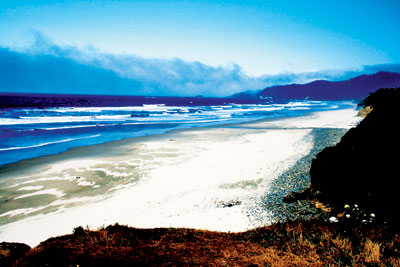All Nonfiction
- Bullying
- Books
- Academic
- Author Interviews
- Celebrity interviews
- College Articles
- College Essays
- Educator of the Year
- Heroes
- Interviews
- Memoir
- Personal Experience
- Sports
- Travel & Culture
All Opinions
- Bullying
- Current Events / Politics
- Discrimination
- Drugs / Alcohol / Smoking
- Entertainment / Celebrities
- Environment
- Love / Relationships
- Movies / Music / TV
- Pop Culture / Trends
- School / College
- Social Issues / Civics
- Spirituality / Religion
- Sports / Hobbies
All Hot Topics
- Bullying
- Community Service
- Environment
- Health
- Letters to the Editor
- Pride & Prejudice
- What Matters
- Back
Summer Guide
- Program Links
- Program Reviews
- Back
College Guide
- College Links
- College Reviews
- College Essays
- College Articles
- Back
Coral Reef
Imagine living in a home that you have been lived in ever since it was built, but then from some terrible disaster, or pollution it was no longer a safe house to live in, so you would die.This is exactly what is happening to the Coral Reef. Many of these animals are dying because all the many things that are getting thrown into the ocean. Getting to know coral reef, the depletions of it and what is making it deplete will better help the coral reef out.
Many people characterize coral as plants because they have the many characteristics of plants,but they are actually animals. Coral reef are related to the jellyfish and anemones and are classified as Anthozoa. There are over 800 known species of reef- building coral worldwide and hundreds of species of soft corals and deep sea corals, according to National Oceanic and Atmospheric Administration. But these numbers are growing very fast! Just like many other species coral is found in different habitats and locations around the world. Corals are found throughout the ocean, from deep cold waters, too shallow, tropical water. Shallow water coral reefs occupy approximately 110,000 square miles of the sea floor( side to side an area a little bit bigger than Texas). Deep sea coral inhabit deeper waters on continental shelves, slopes,canyons and sea mounts. Some corals reproduce by budding where new polyps bud off from parent polyps to expand or begin new colonies. Coral around the world is in decline due to a variety of threats. Two of the Caribbean species are listed under the endangered species according to Anne E. McElroy of School of Marine and atmospheric Sciences.
Losing the natural reef barrier would have a significant physical and economical effect on the coastal communities as well as the millions of people who live near coral reefs. Coral reef depletion
can be caused by many things. Pollution has had a big impact in the depletion of coral. The pollutants can cause disease and mortality in sensitive species. Many major coral reef ecosystems stressors come from land-based sources. On the US islands in the Pacific and Caribbean there has been a significant change in the drainage basins due to many things such as: agriculture, fires, road construction etc. Climate change impacts have been identified as one of the greatest global threats to coral reef ecosystems. Fishing impacts in coral reef areas, can lead to depletion of key functional groups of reef species in many locations. Rapid human growth and demand for fishery resources have led to the depletion of key reef species and habitat damage, according to National Oceanic and Atmospheric Administration. Just like pollution, climate change, and fishing has had an impact on Coral Reef, the oil spills have had a large impact on them too.
The impact that oil spills have on coral matters on the composition of the oil at the time of the impact. There are three primary modes of exposure. Direct oil contact when suffrace oil is deposited on the corals that live near the surface of the water.A light oil can combine to mix into the oil below the surface, where it can impact the coral. Direct contact with spilled oil can lead to coral death, but it depends on the species growth form, and the type of the oil exposure. In Arabian(Persian) Gulf spill in January 1991, the largest oil spill in history, an estimated 6.3 million barrels of oil were released, there were extreme expectations of severe impacts to the reefs in Kuwait and Saudi Arabia, according to Mark Tutton of CNN.
Coral Reef deserve to have a clean habitat to live in.
They shouldn’t have to suffer because Americans pollute, and can’t control their fishing. Many coral are getting threatened and dying because its not clean. Lets help the coral out by controlling fishing by the Reefs and not polluting our own habitat. Coral Reef are animals just like all the many species we have. Lets help them stay alive!

Similar Articles
JOIN THE DISCUSSION
This article has 0 comments.
